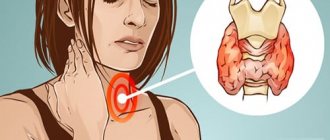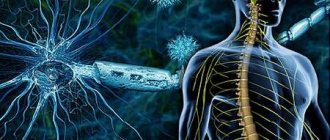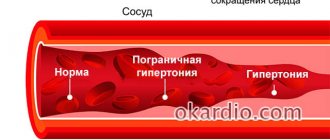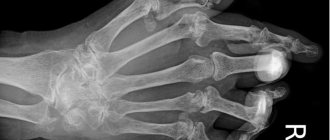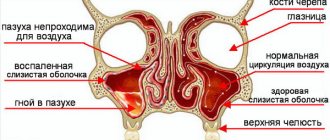In general medical and popular understanding, amnesia is memory loss. There are several varieties of this disease. It is one of the most severe - fixation amnesia, which is characterized by the inability to remember events that occur.
The patient does not remember what recently happened. He is unable to retell the words he heard a second before. In addition to the events taking place, the patient does not remember anything about himself - his name, age, location, purpose of being in a certain place.
All information from ten to twenty years ago is perfectly preserved. A person can retell it with all the smallest details. Sometimes the patient is not able to understand when this or that event happened to him.
A completely healthy and common reaction to one’s own condition is confusion, an innocent smile, and surprise. Fixation amnesia is the extreme and most severe form of Korsakoff's syndrome.
Causes of amnesia
Globally, the causes of amnesia can be divided into organic and psychological. They can be very diverse and depend on age. If we talk about the phenomenon of amnesia in older people, then the main reasons are degenerative processes of the brain (natural for older people) or diseases (for example, Alzheimer's disease, the consequences of vascular, neurotrophic diseases). If amnesia manifests itself at a young age, it often occurs due to certain psychological factors , damage to the brain (certain areas of it) due to injury or disease.
Some of the most likely causes of this pathology are:
- the occurrence of inflammatory or infectious processes in the brain;
- traumatic brain injury (especially with damage to the temporal lobes of the brain);
- mental illnesses (schizophrenia, Alzheimer's disease, epilepsy, Parkinson's disease);
- alcohol abuse;
- senile dementia (dementia);
- various poisonings;
- psychotrauma;
- cerebral circulatory defects;
- brain tumors;
- chronic stress, overwork;
- too pronounced emotional stress.
Diagnostics
The diagnostic program is carried out on an individual basis.
The inspection is carried out with the participation of the following specialists:
- psychiatrist;
- neurologist;
- neurosurgeon;
- expert in narcology;
- infectious disease specialist
Diagnosis can be based on the following measures:
- collection of personal and family history - this stage is advisable to carry out together with family and friends;
- assessment of neurological status;
- a comprehensive psychiatric examination is carried out;
- MRI and ultrasound of the brain;
- duplex scanning;
- CT, MRI of the brain;
- electroencephalography;
- detailed biochemical blood test;
- cerebrospinal fluid examination.
Electroencephalography
Based on the results of clinical studies, the doctor prescribes treatment and gives tentative prognoses, if possible.
Types of amnesia
Typically, the following main possible types of amnesia are distinguished, manifested by different symptoms:
- retrograde;
- anterograde;
- anteroretrograde;
- congrade;
- transient;
- retarded;
- fixation;
- dissociated;
- dissociative fugue;
- childhood amnesia;
- post-hypnotic amnesia.
A type of retrograde amnesia means that a person is unable to remember what happened to him in the pre-morbid period. It is this type of amnesia that writers and directors most often demonstrate in their works, and it is precisely this type that almost all people know about, even those who were not previously interested in the phenomenon of amnesia.
With anterograde amnesia, a person is unable to remember events that happen after the onset of amnesia. At the same time, the patient can remember everything that happened to him before the disease. A person may experience retrograde and anterograde amnesia together, and then it is called anterograde .
Congrade amnesia implies the inability to remember events that occurred around the patient while he was in a coma, in a state of stupor or stupor (impaired consciousness). During the period of coma and stupor, such amnesia is complete, and during stunning it is partial.
With transient amnesia, a person loses memory for a period of time that does not exceed several hours. It is characterized by impaired short-term memory, the inability to remember what happened earlier in the previous days, months, years. However, during the occurrence of this type of amnesia, the ability to solve complex problems, count, and remember one’s name and the personalities of loved ones remains.
A feature of retarded amnesia is the fact that memory loss occurs during a period of disorder of consciousness or a painful mental state, but it occurs only after a certain time has passed after the patient has returned to clarity of consciousness.
Fixation amnesia is manifested by loss of memory for events happening to a person at a given time, for current events. This type of amnesia acts as one of the components of the symptoms of Korsakoff's syndrome, during which complex retrograde and anterograde amnesia develops, combined with other symptoms.
With dissociative amnesia, the memory of general knowledge remains intact, but facts and events from personal life “fall out” of memory. In most cases, the cause is psychological trauma and then, thanks to the protective mechanism of mental activity called “repression,” unpleasant facts from the patient’s life are forced out of the sphere of consciousness into the unconscious, since they are considered potentially traumatic for the individual’s psyche.
Dissociative fugue is a more complex and serious memory disorder, which is characterized by the unexpected move of patients to another place of residence and the fact that they completely forget their own biographical and personal data (even their name) there. This pathological condition can last from a couple of hours to several months (sometimes longer). After this state passes, the person suddenly regains the memory of his past. It is characteristic that patients often do not remember anything that took place during the fugue period.
Infantile amnesia and post-hypnotic amnesia , in their essence, are not pathologies and are common to almost all people. Childhood amnesia is the inability to remember what happened to a person in early childhood (the reason for this may be the insufficient development of certain parts of the brain or unpleasant events occurring during this period that one simply does not want to remember), and post-hypnotic amnesia is the inability of a person to remember what happened to him during being in a state of hypnotic trance.
Symptoms
Signs of the disorder often develop as a reaction to trauma. Being stressed can make symptoms worse over time, making them much more obvious. Dissociative amnesia can make it difficult for people to function professionally or at home . Common symptoms for all types of dissociative amnesia include the following:
- The ability to remember certain time periods or processes deteriorates.
- People don't recognize relatives and friends.
- Amnesia may last for minutes, hours or months.
- Often, memory loss is aggravated by other mental disorders, depression, anxiety, and the desire to commit suicide.
- Sometimes patients do not recognize themselves when looking in the mirror.
- Surrounding objects and personalities seem unreal.
- The patient does not perceive himself as a person.
- There are problems at work or other significant areas of life.
Complicated symptoms: self-injury and suicide attempts, problems with the reproductive system, difficulties in controlling procreation instincts, alcoholism, dependence on other psychotropic drugs, depression, sleep disorders, anxiety, gastrointestinal problems, severe headaches.
How can you help with amnesia?
Speaking about the treatment of amnesia, it is important to emphasize that if symptoms of memory impairment are detected, it is necessary to seek help from specialists as quickly as possible. The result of therapy will depend on the cause of amnesia, the timeliness of contacting a doctor and the correctness of the selected treatment. Therapy for amnesia should be comprehensive and include: treatment with medications, neuropsychological rehabilitation and psychotherapy. With natural age-related degenerative changes in the brain, complete restoration of memory, unfortunately, is impossible, but a significant slowdown in further memory decline and the process of social maladaptation is more than realistic. It’s just very important to ask for help not too late!
Give yourself and your loved ones many more happy years of life with the opportunity to capture in your memory all the most pleasant and joyful moments!
Therapeutic effect
Psychiatrists are dealing with the problem of dissociative amnesia. To identify a mental disorder and distinguish it from other pathologies, a specialist collects information about processes that can provoke such problems. To do this, relatives or other close people are interviewed who could reproduce the picture of the events taking place.
To make an accurate diagnosis, it is necessary to exclude causes that also cause amnesia: dependence on psychotropic drugs, alcohol intoxication, skull injuries, epilepsy, Korsakoff's syndrome. Dissociative amnesia can be distinguished from other pathologies by visual examination of the patient and instrumental examination methods, including MRI or CT scan of the brain.
At the initial stage of therapy, the patient is in a calm state that does not traumatize his psyche. If it is necessary to determine affective behavior, sedatives are used. After the patient calms down, the main stage of treatment begins, aimed at obtaining the following results:
- Restoring normal mental functioning.
- Search for more effective methods of dealing with complex nervous shocks.
The choice of treatment method depends on the individual characteristics of the patient. Cognitive-behavioral treatment methods are often carried out, which involve performing actions to develop new reflexes to the influence of various environmental factors.
It is possible to use creative psychotherapy to help restore mental functioning through listening to music, reading, etc. if amnesia appears due to problems in the family, close relatives may be involved in the treatment process. When determining an anxious state, tranquilizers are used for suppression purposes. Antidepressants are used during depression.
Experts most often give a positive prognosis for therapy for dissociative amnesia. But in many situations, traumatic events are eliminated from people's memory forever. At the same time, patients often forget information that they interacted with not so long ago. Memory deteriorates under stress. Amnesia therapy involves the use of various psychotherapeutic methods, the activity of which is aimed at resuming natural nervous activity and combating the pathological process.
Treatment
The memory of every person is an incredibly complex mechanism that depends on many factors. Memory recovery can take a long time.
Stop taking medications that can impair memory (according to the doctor’s opinion, in some cases you can simply reduce their dose).
It is necessary to take vitamin B1 if there is a deficiency (responsible for memory), as well as undergo medicinal procedures, which include taking:
- drugs that improve brain nutrition (nootropics, etc.);
- medications that improve blood flow (vasoactive drugs, etc.).
Classes are also conducted to improve memory (solving logical problems and riddles, regular classes with specialists, and so on).
